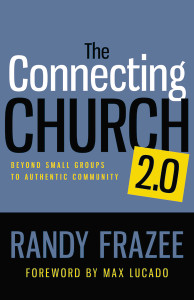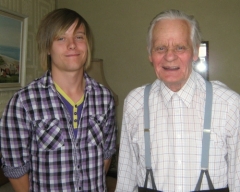Earlier this week, I posted an article about Hilary Clinton’s tweet that offended Millennials and how the church can learn from her mistake.
Here is a new article that while focusing on marketing can reveal how churches often drive Millennials away.

Authenticity is a buzzword – especially among churches.
Yet the meaning is different for Millennials that other generations (Read more HERE).
If you are seeking Millennials, it is crucial to be true to yourself. As I reflected on how churches attempt to appeal to Millennials in inauthentic ways, here are a few questions that came to mind.
1. Do you claim to be non-denominational, and yet have clear ties and restricted beliefs for your community?
2. Do you claim diversity, and yet have none? (For example, when using “Stock” photos, do you accurately represent your community?)
3. Do you claim to be earth-friendly, and yet don’t recycle? I know of two large churches in my community who actually put out recycling containers to appear eco-friendly, and yet were unwilling to pay for recycling (and they were throwing the recyclables in the garbage).
4. Do you claim to empower women and yet don’t have any in leadership?
I do not believe that you have to change your communities policies in these areas; however, you should accurately display them.
The main point of the article is that we should truly express our community’s set of beliefs (rather than hiding – or using a “bait and switch” technique). While these beliefs may turn away some people, they will help others find a place where they belong.
 Dr. G. David Boyd is the Founder and Managing Director of EA Resources. If he can assist your community to reach Millennials, please contact him at gdavid@earesources.org.
Dr. G. David Boyd is the Founder and Managing Director of EA Resources. If he can assist your community to reach Millennials, please contact him at gdavid@earesources.org.







